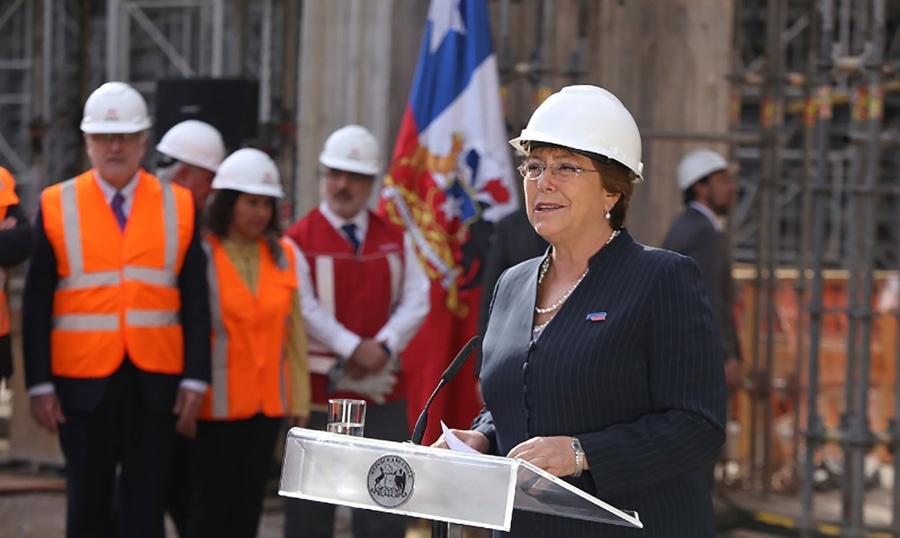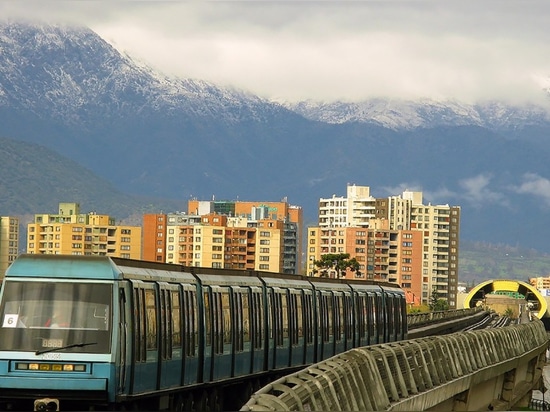
#LANDSCAPING AND URBAN PLANNING PROJECTS
Chile introduces world’s first metro to be powered largely by renewables
Public transportation offers a sustainable alternative to masses of individual automobiles, yet many systems still run on unsustainable power sources. With around 2.2 million people riding the Metro de Santiago every day, Chile requires a great deal of energy to keep people moving. President Michelle Bachelet recently announced the country’s mass transit system will soon be almost entirely powered by wind and solar energy, resulting in a slew of environmental benefits.
This is an exciting step for South America’s second largest subway system in terms of length. Chile’s Metro de Santiago will receive 42 percent energy from solar power and 18 percent from wind power. The country’s step towards renewables highlights its commitment to clean energy that does not harm the environment or people, according to President Bachelet. She announced the news at a future metro station currently under construction.
California solar company SunPower is building the solar plant that will generate the solar power, and Brazilian company Latin America Power owns the wind project also worked on by Spanish company Elecnor that will provide wind power.
SunPower expects their solar plant to be finished in 2017. According to the company, Metro de Santiago “will become the first public transportation system in the world to run mostly on solar energy.” In a statement, SunPower’s Executive Vice President of Power Plants Eduardo Medina said, “Solar is an ideal energy source for Chile because of the country’s high solar resource and transparent energy policies.”
Chile will make the switch to renewables in 2018 when the solar and wind plants are operational. The projects will provide Metro de Santiago with renewable energy for 15 years. According to President Bachelet, not only will passengers be able to travel swiftly and safely, they will be able to get around in a way that “cares for the planet, reduces our carbon footprint, and makes possible a sustainable future for all.”
Award-winning architecture firm Foster + Partners just unveiled plans for a new city-wide public transportation plan for Jeddah—one of the most vibrant city centres in Saudi Arabia. Foster + Partners came out first in an international design competition for the city’s transport network, and a contract-signing ceremony was held today to celebrate the project’s launch. The firm will be designing everything from the train stations and branding to metro, bus, ferry, and cycling spaces. This new system is being approached with a long-term, sustainable view; one that takes into account how the city will evolve over the next few centuries, rather than just a couple of decades from now.
The central focus point of the master plan will be the ancient Al Balad quarter, which was founded in the 7th century, as it has pedestrian-friendly shaded streets. This area is very highly populated, but there are so few public transport nodes at the moment that only 12 percent of residents live within walking distance of bus or subway points.
Foster + Partners aim to raise that number to 50 percent or more, with strategic planning that takes advantage of the area’s density. Each public transport station is being designed to be a central hub in a new neighborhood, each of which will have unique character. Together, those neighborhoods will help to create a multifaceted city that has something fascinating to appreciate at every turn.

